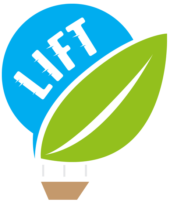Workshops will be also a platform of networking for different stakeholders. The workshops will be organised by the LIFT partners in their own case study areas under the supervision of WP7 leader and using methodological guidance from a committee consisting of WP7 leader and of leaders of WP and tasks requiring the use of the stakeholders’ panels.
Stakeholders will include farmers’ representatives (e.g. unions, farm producer groups), chambers of agriculture, up and downstream companies, retailers, farm advisory services, banks, land management bodies, governmental bodies, certification organisations, citizens’ associations and NGOs (with objectives towards the environment, the communities, etc.) and consumers. They will relate to the local, national or European level. Stakeholders from EIPAGRI, ENRD and from EU countries not covered by the LIFT consortium will also be involved. Stakeholders across the 13 countries represented in LIFT have been consulted on the main concepts and approaches included in LIFT.
Interactions with stakeholders are crucial for LIFT, as innovative ideas may arise from those who have the best practical knowledge and vision for the future. And some innovations may only be successful when several stakeholders jointly design and implement them. LIFT will be conducted along the concept of Responsible Research and Innovation (RRI) where a diversity of actors, depending on their knowledge, expertise and role in the society, will be integrated into most tasks in the project. LIFT partners already have strong links with local and national stakeholders, and have extensive experience in collaborating with them through participatory approaches.
Annual stakeholders’ workshops planned in the LIFT case study areas
| Name of the case study area | Geographical level | Partner responsible |
|---|---|---|
| Ireland | Country | Teagasc |
| Bavaria (DE) | NUTS1 | ECOZEPT |
| Flanders (BE) | NUTS1 | KU Leuven |
| Auvergne (FR) | NUTS2 | VetAgro Sup |
| Brittany (FR) | NUTS2 | INRAE |
| Eastern Scotland (Scotland, UK) | NUTS2 | SRUC |
| Highlands & Islands (Scotland, UK) | NUTS2 | SRUC |
| Lubelskie (PL) | NUTS2 | IRWiR PAN |
| Podlaskie (PL) | NUTS2 | IRWiR PAN |
| Nouvelle-Aquitaine (FR) | NUTS2 | INRAE |
| Areas in North Sweden (SE) | Several NUTS3 (FADN region) | SLU |
| High Weald AONB (England, UK) | Several NUTS3 | UNIKENT |
| Plain areas in South and Middle Sweden (SE) | Several NUTS3 (FADN region) | SLU |
| Cluj (RO) | NUTS3 | IAE-AR |
| Hadju-Bihar (HU) | NUTS3 | KRTK |
| Heraklion, Crete (GR) | NUTS3 | DEMETER |
| Lasithi, Crete (GR) | NUTS3 | DEMETER |
| North Kent (England, UK) | NUTS3 | UNIKENT |
| Ravenna (IT) | NUTS3 | UNIBO |
| Salzburg und Umgebung (AT) | NUTS3 | BOKU |
| Sarthe (FR) | NUTS3 | INRAE |
| Steyr-Kirchdorf (AT) | NUTS3 | BOKU |
| Suceava (RO) | NUTS3 | IAE-AR |
| Veszprem (HU) | NUTS3 | KRTK |
| Areas surrounding large cities (SE) | Municipalities | SLU |


